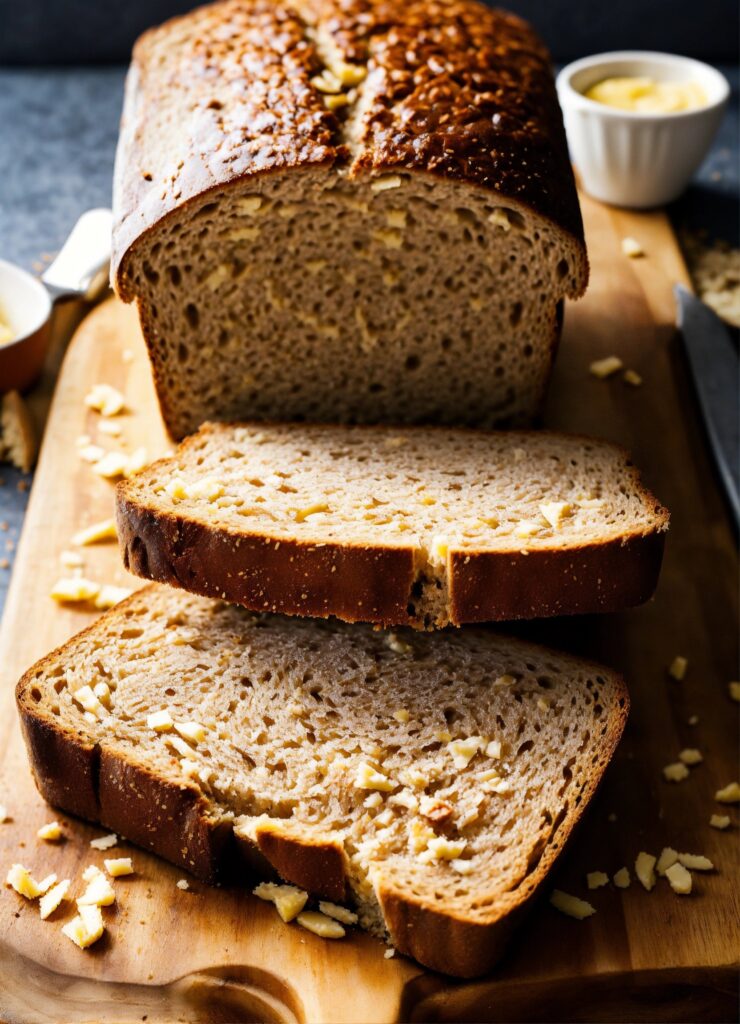Great Health Great Fitness
“The Silent Struggle: Understanding Constipation Causes, Symptoms, and Solutions for a Better Lifestyle”
In a world where the discomfort of constipation often goes unspoken, it's crucial to shed light on this silent struggle. From understanding the underlying causes to recognizing the telltale symptoms, this comprehensive guide offers insights into reclaiming digestive health. With a focus on practical solutions and lifestyle adjustments, embark on a journey towards a happier, healthier you, free from the grip of constipation's silent struggle.

Introduction
Constipation is a common digestive issue that affects millions of people worldwide, often causing discomfort, frustration, and disruption to daily life. Despite its prevalence, constipation is often overlooked or dismissed as a minor inconvenience. However, understanding the underlying causes, recognizing the symptoms, and implementing effective solutions are essential for improving digestive health and enhancing overall well-being. This article aims to shed light on the silent struggle of this disease, offering insights into its causes, symptoms, and solutions for achieving a better lifestyle.
In delving into the multifaceted landscape , it becomes evident that its roots extend beyond mere dietary indiscretions or sporadic lifestyle choices. Rather, it often serves as a silent sentinel, signaling underlying imbalances within the intricate tapestry of gastrointestinal health. From dietary habits and medication regimens to physiological factors and psychological stressors, a myriad of influences conspire to disrupt the delicate rhythm of digestive function, precipitating the onset of constipation’s unwelcome symptoms.
Amidst the discomfort and frustration wrought by it, there exists a glimmer of hope—a beacon of understanding and empowerment illuminating the path towards lasting relief and restored vitality. By unraveling the enigma , discerning its telltale signs, and embracing a holistic approach to wellness, individuals can reclaim agency over their digestive destiny. Through informed dietary choices, mindful lifestyle adjustments, and judicious utilization of therapeutic interventions, the silent struggle of this it can be transformed into an opportunity for growth, resilience, and renewed appreciation for the intricate dance of mind-body harmony.
As we embark on this journey of exploration and discovery, let us heed the call to action, emboldened by the promise of a brighter tomorrow free from the shackles of constipation’s silent grip. Together, armed with knowledge, compassion, and unwavering determination, we can usher in a new era of digestive health and well-being, where it ceases to be a barrier and becomes a catalyst for positive change. It is in this spirit of unity and empowerment that we embark on our quest to illuminate the silent struggle and pave the way towards a better, brighter future for all.
Understanding Constipation
It is defined as infrequent bowel movements or difficulty passing stools, often accompanied by hard, dry stools and straining during bowel movements. While occasional it is common and usually resolves on its own, chronic it can have a significant impact on quality of life and may require medical intervention. Constipation can result from various factors, including diet, lifestyle, medications, medical conditions, and psychological factors.
The underlying causes of constipation are multifaceted, stemming from a complex interplay of dietary, lifestyle, medical, and psychological factors. Dietary choices lacking in fiber, insufficient fluid intake, and the consumption of processed foods can impede proper digestion and bowel function, exacerbating constipation. Sedentary lifestyles, irregular bowel habits, and ignoring the body’s natural signals can further disrupt the intricate balance of the digestive system, leading to persistent constipation. Additionally, certain medications, such as opioids, antacids, and antidepressants, can induce constipation as a side effect by slowing down intestinal motility.
Moreover, underlying medical conditions, including irritable bowel syndrome (IBS), hypothyroidism, and neurological disorders, may contribute to constipation by altering normal bowel function. Psychological factors, such as stress, anxiety, and depression, can also impact gastrointestinal health, exacerbating constipation symptoms.
As such, understanding the diverse array of factors contributing to constipation is paramount in developing effective management strategies and promoting optimal digestive health. By addressing dietary habits, adopting a more active lifestyle, and managing stress levels, individuals can mitigate the risk of constipation and enhance overall well-being. Additionally, seeking medical evaluation and intervention may be necessary for those experiencing chronic constipation or underlying medical conditions contributing to their symptoms. Through a holistic approach that encompasses dietary modifications, lifestyle changes, and targeted interventions, individuals can alleviate constipation and reclaim control over their digestive health.
Causes of Constipation

- Dietary Factors: A low-fiber diet, inadequate fluid intake, and excessive consumption of processed foods and dairy products can contribute to constipation by slowing down bowel transit time and reducing stool bulk.
- Lifestyle Choices: Sedentary lifestyle, lack of physical activity, ignoring the urge to defecate, and irregular bowel habits can disrupt normal bowel function and contribute to constipation.
- Medications: Certain medications, including opioids, antacids containing aluminum or calcium, diuretics, antidepressants, and antispasmodics, can cause constipation as a side effect.
- Medical Conditions: Various medical conditions can predispose individuals to constipation, including irritable bowel syndrome (IBS), hypothyroidism, diabetes, neurological disorders, pelvic floor dysfunction, and colorectal disorders.
- Hormonal Changes: Hormonal fluctuations during pregnancy, menstruation, and menopause can affect bowel function and lead to constipation in some individuals.
- Psychological Factors: Stress, anxiety, depression, and other psychological factors can influence bowel habits and exacerbate symptoms of constipation.
Symptoms of Constipation

- Infrequent Bowel Movements: The hallmark symptom of constipation is infrequent bowel movements, typically fewer than three times per week.
- Difficulty Passing Stools: Individuals with constipation may experience difficulty passing stools, often described as straining or feeling incomplete evacuation.
- Hard, Dry Stools: Stools may be hard, dry, and difficult to pass, leading to discomfort and pain during bowel movements.
- Abdominal Discomfort: It can cause abdominal bloating, cramping, discomfort, and distension due to trapped gas and fecal matter.
- Rectal Symptoms: Some individuals may experience rectal discomfort, pain, or itching, as well as the sensation of a blockage or obstruction in the rectum.
- Changes in Bowel Habits: Chronic it can lead to changes in bowel habits, including alternating periods of this and diarrhea (irritable bowel syndrome with constipation, or IBS-C).
Solutions for Constipation Relief
- Dietary Modifications: Increasing dietary fiber intake by consuming more fruits, vegetables, whole grains, legumes, nuts, and seeds can promote regular bowel movements and prevent constipation. Drinking an adequate amount of water (at least eight glasses per day) is also essential for maintaining hydration and supporting healthy digestion.
- Lifestyle Changes: Engaging in regular physical activity, such as walking, jogging, swimming, or yoga, can help stimulate bowel motility and alleviate constipation. Establishing regular bowel habits by scheduling time for bowel movements, responding to the urge to defecate, and avoiding delaying or ignoring the need to use the restroom can promote regularity.
- Medication Management: Over-the-counter laxatives, stool softeners, fiber supplements, and osmotic agents may be used to relieve and promote bowel movements. However, these medications should be used judiciously and under the guidance of a healthcare professional to avoid dependency and potential side effects.
- Natural Remedies: Certain natural remedies and herbal supplements, such as psyllium husk, flaxseed, senna, aloe vera, and magnesium citrate, may help alleviate constipation by promoting bowel motility and softening stools. However, it’s essential to consult with a healthcare provider before using these remedies, especially if you have underlying medical conditions or are taking medications.
- Biofeedback Therapy: For individuals with pelvic floor dysfunction or dyssynergic defecation, biofeedback therapy may be recommended to retrain pelvic floor muscles and improve coordination during bowel movements. Biofeedback therapy involves using sensors and visual or auditory feedback to teach patients how to relax and coordinate pelvic floor muscles effectively.
- Prescription Medications: In cases of severe or refractory constipation, prescription medications such as prokinetic agents (e.g., prucalopride), secretagogues (e.g., lubiprostone), or guanylate cyclase-C agonists (e.g., linaclotide) may be prescribed to stimulate bowel motility and relieve symptoms. These medications are typically reserved for individuals with chronic constipation who have not responded to other treatment options.
Preventing Constipation Recurrence

- Maintain a Healthy Diet: Continue to consume a well-balanced diet rich in fiber, fluids, and nutrients to support regular bowel movements and prevent constipation recurrence.
- Stay Active: Incorporate regular physical activity into your daily routine to promote bowel motility, improve circulation, and maintain overall health and well-being.
- Establish Regular Bowel Habits: Maintain regular bowel habits by responding to the urge to defecate, avoiding delaying or ignoring the need to use the restroom, and establishing a consistent toileting routine.
- Manage Stress: Practice stress management techniques such as deep breathing, meditation, yoga, or mindfulness to reduce stress levels and promote relaxation, which can help alleviate constipation.
- Stay Hydrated: Drink an adequate amount of water throughout the day to stay hydrated and support healthy digestion. Limit consumption of dehydrating beverages such as caffeinated and alcoholic drinks.
- Seek Prompt Treatment: The symptoms persist or worsen despite lifestyle modifications and over-the-counter remedies, consult with a healthcare professional for further evaluation and management. Chronic it may indicate an underlying medical condition that requires prompt medical attention.
Conclusion
It is a common digestive issue that can significantly impact quality of life and overall well-being if left untreated. By understanding the underlying causes, recognizing the symptoms, and implementing effective solutions, individuals can alleviate constipation, improve digestive health, and achieve a better lifestyle. Whether through dietary modifications, lifestyle changes, medication management, natural remedies, or biofeedback therapy, there are various approaches to relieving constipation and preventing recurrence. By adopting healthy habits, seeking prompt treatment when needed, and maintaining regular bowel habits, individuals can overcome the silent struggle of this and enjoy a happier, healthier lifestyle.
Effective solutions for span a spectrum of approaches, each offering a unique pathway towards relief and restoration. Whether through dietary modifications aimed at boosting fiber intake, lifestyle changes designed to promote regularity, or medication management targeted at addressing underlying imbalances, individuals have a wealth of tools at their disposal to combat and reclaim their vitality. Additionally, natural remedies, such as herbal supplements and biofeedback therapy, offer alternative avenues for relief, harnessing the power of nature and technology to restore balance to the digestive system.
However, the journey towards the relief does not end with the implementation of these solutions. Rather, it requires a commitment to ongoing self-care and vigilance—a dedication to maintaining healthy habits, seeking prompt treatment when needed, and nurturing regular bowel habits. By cultivating a holistic approach to wellness, individuals can transcend the silent struggle of constipation, emerging on the other side with renewed vigor, vitality, and appreciation for the transformative power of proactive management.
In essence, it is not merely a physical ailment to be endured but an opportunity for growth, resilience, and empowerment. By embracing the journey towards it relief with open hearts and minds, individuals can navigate its challenges with grace, emerging stronger, healthier, and more vibrant than before. Through understanding, support, and a steadfast commitment to wellness, it can be transformed from a silent struggle into a catalyst for positive change, paving the way towards a happier, healthier lifestyle for all. For More Information you can check our blogs “The Hidden Dangers of Wheat Flour: Exploring Side Effects and Health Risks”.
